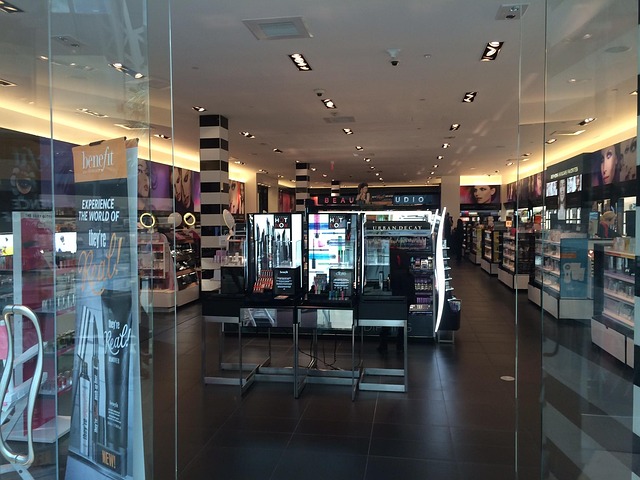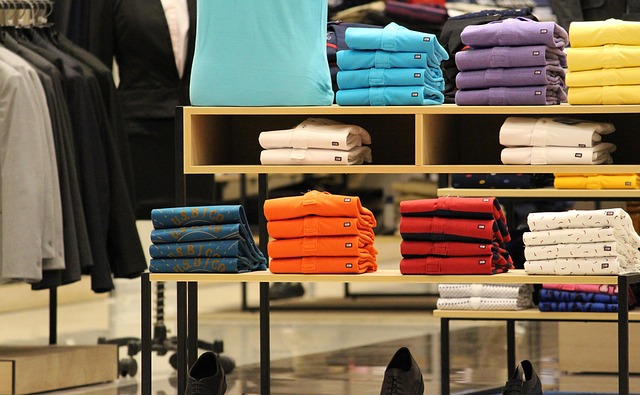In the competitive retail sector, maintaining customer satisfaction and business integrity is crucial. Background checks for retail employees are essential tools to prevent misconduct, loss, and damaged trust. Thorough screenings protect retailers from hiring dishonest staff, ensuring a safe shopping environment and strengthening brand reputation. Legal mandates require comprehensive checks, including criminal records and employment history, fostering trust and accountability. Best practices involve multifaceted approaches, regular re-screening, and performance monitoring, with success measured through incident reduction and positive feedback. Effective retail employee integrity screening is key to operational excellence and customer safety in a dynamic market.
In today’s competitive retail landscape, safeguarding your business reputation is paramount. The impact of employee misconduct can be devastating, leading to lost sales, damaged customer trust, and a tarnished brand image. Effective background checks are not just a legal requirement but a crucial tool to ensure retail integrity. This article explores the necessity of thorough background screening, common types of criminal checks, legal considerations, best practices for implementation, and measuring success in retail employee integrity programs.
- The Impact of Retail Employee Misconduct on Business Reputation
- Understanding the Need for Thorough Background Checks
- Common Types of Criminal Background Checks in Retail
- Legal Considerations and Compliance for Retail Background Screening
- Best Practices for Implementing Effective Retail Employee Screening Programs
- Measuring Success: Monitoring and Evaluating Retail Background Check Effectiveness
The Impact of Retail Employee Misconduct on Business Reputation

In the fast-paced and customer-centric world of retail, maintaining a positive business reputation is paramount. However, this is often threatened by employee misconduct, which can severely damage a retailer’s integrity. Incidents such as theft, fraud, or inappropriate customer interactions not only result in financial losses but also erode customer trust, leading to negative online reviews, social media backlash, and a tarnished brand image. Retailers must recognize that their employees are the face of their business; thus, ensuring the integrity and reliability of each team member is crucial.
Background checks for retail employee screening play a pivotal role in mitigating these risks. Thorough background investigations can uncover potential red flags, including criminal records, previous employment disputes, or unethical behavior. By implementing robust retail employee screening processes, businesses can make informed decisions, protect themselves from costly mistakes, and ensure that their staff aligns with the company’s values and expectations. This proactive approach to maintaining retail employee integrity is essential for fostering a safe and welcoming shopping environment while safeguarding the organization’s reputation in today’s competitive market.
Understanding the Need for Thorough Background Checks

In today’s digital era, where every transaction and interaction leaves a digital footprint, maintaining retail employee integrity is more critical than ever for industry reputation. Background checks for retail employees are not merely a legal requirement but a strategic investment in safeguarding customer trust and ensuring operational excellence. Retail environments often deal with sensitive data, cash transactions, and direct customer interactions, making them vulnerable to unethical practices if proper precautions aren’t taken.
Thorough background screening plays a pivotal role in identifying potential risks before they escalate. It involves verifying employment history, criminal records, education, and references to uncover any red flags that could indicate dishonesty or fraudulent behavior. By implementing robust background check processes, retailers can mitigate the chances of hiring individuals with a history of theft, fraud, or other malicious activities, fostering a safer and more trustworthy work environment.
Common Types of Criminal Background Checks in Retail

In the retail industry, maintaining a strong reputation is paramount. One key aspect often overlooked but critical to achieving this is implementing robust background checks for retail employees. These checks are essential tools to ensure the integrity and safety of retail operations. Common types include criminal record checks (CRCs), which scan federal and state databases for any prior convictions or pending charges, offering a comprehensive overview of an applicant’s legal history.
Additionally, many retailers utilize drug screening programs as part of their background check process. These tests not only ensure that employees are fit to work but also contribute to creating a safe shopping environment. Background checks for retail employees go beyond criminal records; they may include education and employment verification to confirm qualifications and identify potential red flags in an applicant’s history. Such meticulous screening is pivotal in fostering a positive brand image and ensuring the well-being of both customers and staff.
Legal Considerations and Compliance for Retail Background Screening

In the dynamic landscape of retail, maintaining a robust system for background checks is not just a best practice—it’s a legal necessity. Employers must adhere to stringent regulations designed to safeguard consumer rights and protect against potential risks associated with unscreened personnel. Failure to conduct thorough background screening can lead to significant legal repercussions, including liability for any illicit activities committed by employees.
Retail industry-specific laws vary across regions, but they generally mandate comprehensive checks involving criminal records, previous employment history, and other relevant data points. Employers are required to ensure these processes are conducted ethically and transparently, respecting the privacy rights of individuals while ensuring the integrity of their retail operations. Compliance with these legal considerations not only shields businesses from legal troubles but also fosters a culture of trust and accountability among employees.
Best Practices for Implementing Effective Retail Employee Screening Programs

Implementing a robust retail employee screening program is paramount to upholding integrity and ensuring a positive reputation in the competitive retail landscape. Best practices involve multifaceted approaches that extend beyond basic background checks. Comprehensive screening should include verifying employment history, conducting criminal background investigations with appropriate exceptions based on role and responsibilities, and assessing soft skills like honesty, reliability, and customer service aptitude through structured interviews or reference checks.
Additionally, leveraging technology for efficient data management and verification can streamline the process. Employing digital platforms allows for secure document storage, automated screening workflows, and real-time updates on candidate qualifications. Regular re-screening and ongoing monitoring of employee performance further strengthen integrity by identifying potential issues early and fostering a culture of accountability among retail staff.
Measuring Success: Monitoring and Evaluating Retail Background Check Effectiveness

Measuring success in retail background checks is paramount to maintaining a positive reputation and ensuring customer trust. Monitoring the effectiveness of these checks involves regular reviews and analysis of key metrics. One crucial indicator is the reduction in employee misconduct or theft incidents, which can be directly linked to a robust screening process. By comparing rates of such incidents before and after implementing stringent background checks, retailers can gauge their impact.
Additionally, feedback from managers and colleagues about new hires’ conduct and performance provides valuable insights. High ratings for integrity, ethical behavior, and reliability among newly hired employees suggest that the background check process is effectively filtering out unsuitable candidates. Continuous evaluation of these factors ensures that retail businesses not only maintain but also enhance their employee screening standards over time, fostering a culture of accountability and trustworthiness.






